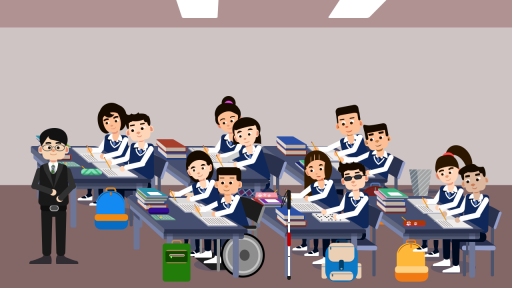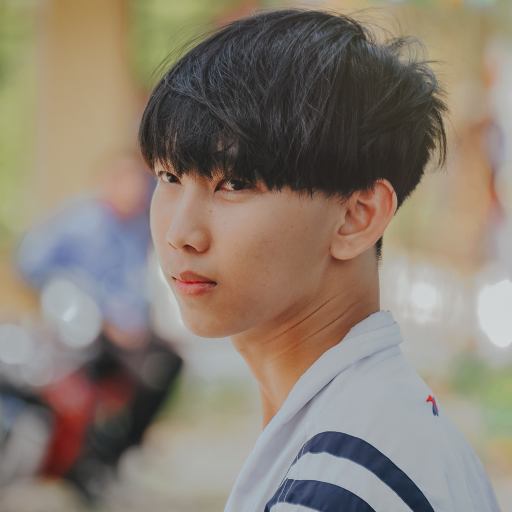Look at the subjects and select the appropriate group for each of them. Some subjects can fit into both groups.
- Učenik piše o razlikama između finskog i južnokorejskog obrazovnog sustava.
- Učenik nakon čitanja teksta o južnokorejskom učeniku pokazuje razumijevanje rješavanjem zadataka odabira točnog odgovora i dopunjavanja rečenica fraznim glagolima i frazama s get.
1 Match the subjects with schools
2 School subjects in Croatia
3 Two different schools
Look at the images from 2 schools, one from Finland and the other one from South Korea. First describe the photos, then comment on the differences between the schools in relation to students, teachers, classrooms and general atmosphere.
4 Read the text
You will read a text about Lee Sung, a South Korean student. After reading the text about his usual school day, decide if the statements are True or False. Correct the False statements.
1 Lee has to wear slippers and a uniform at school.
2 He starts school at 8 o'clock.
3 He studies 14 subjects, not including Music, Art and PE.
4 He wants to study English in Australia.
5 He never stays up late.
5 Reading comprehension
Replace the words and phrases in italics in the questions with the correct form of the phrasal verbs below and then answer the questions using those phrasal verbs.
Phrasal verbs: get up, get on with, meet up with, take off, put on, carry on, get into.
What time does Lee have to ?
Is he a his classmates?
Why doesn't he them after school?
What does he have to and when he gets to school?
Does he always studying late at night?
What does he have to do to university of his choice?
6 Phrasal verbs
Complete the sentences with the following phrasal verbs: meet up with, get into, get on with, take off, get up, put on.
7 Phrases with get
Complete the sentences with the following phrases: get good grades, get a good job, get to, get tired, get into, get home.
8 Show your understanding
Complete the sentences with the correct form of GET.
9 Listening
Listen to an interview with Ula, a student from Finland. Write three ways in which her and Lee's school days are similar and four ways in which they are different.
REPORTER: We have all read about the Finnish school system and how their students are successful and happy. We have taken the time to visit one of the schools in Espoo and talk to the students to get to understand what is so special about the schools and the teachers.
REPORTER: Today we are talking to Ula, a secondary school student, about her typical school day.
REPORTER: Hello, Ula, thanks for talking to us.
ULA: No problem, I'm happy to help.
REPORTER: Tell us something about your usual day. How does it start?
ULA: I usually get up at around 7, 7.15, have a light breakfast and then walk to school because it is only a few minutes from my flat. When I come to school, I take off my trainers and spend the rest of the school day in socks.
REPORTER: Socks? That's great! Do you have to wear a uniform at school?
ULA: No, we can wear what we want, so I usually wear some comfortable clothes like jeans, T-shirts and hoodies or jumpers. Our teachers love this informal atmosphere at school and we can call them by their first name if we want to, we don't have to say Ms. or Mr. just the name. We always have a great time at school so there are no students skipping lessons.
REPORTER: Do you have a lot of subjects?
ULA: Well, we have the usual academic subjects and a lot of PE, Music and Art and our normal school day usually lasts for six hours.
REPORTER: Do you get a lot of homework or do you do it at school?
ULA: It's homework so we do it at home, we get a lot of it, but it's not difficult since we try to pay attention in class.
REPORTER: Do you have any plans for the future?
ULA: Yes, I want to go to England and study Architecture there because I love the country and the language.
REPORTER: Well, I have to say that you won't have any problems with the language because your English is perfect!
ULA: Thanks! Everybody here speaks English well because we start learning it at a very early age.
Write down your notes:
10 Writing
Is your school system similar to the one in Lee's or Ula's country? Whose school day do you prefer, Lee's or Ula's and why?
Write your answer in 80 to 100 words. When you are finished, check your spelling and give your work to your partner so that you can discuss your answers.




